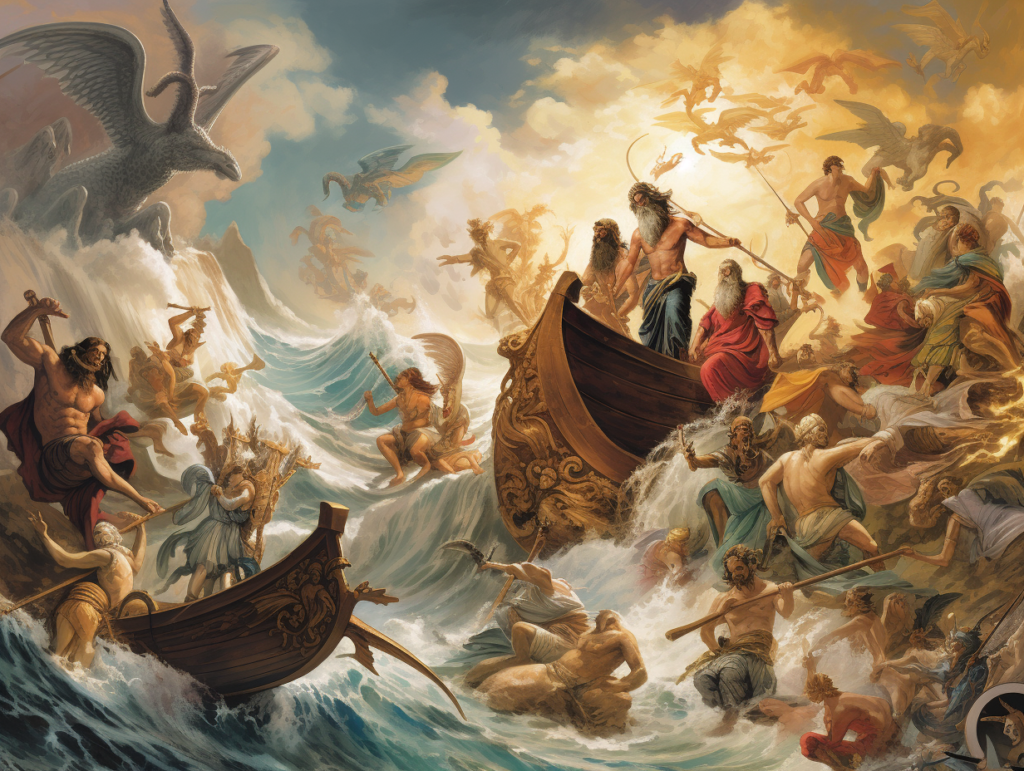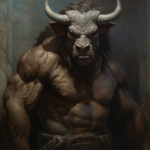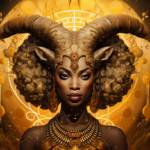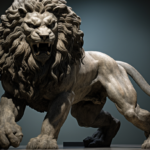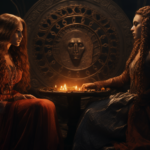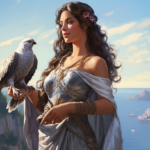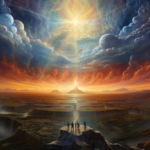Are you ready to embark on a thrilling journey through the captivating world of Greek mythology?
Get ready to be spellbound as you delve into the myths and legends of gods and heroes.
From the creation of the gods and the universe to the epic adventures of heroes, and the dark side of monsters and creatures, this article will take you on an exhilarating exploration.
So grab your imagination and prepare to be captivated by the timeless tales of love, betrayal, and tragedy that define Greek mythology.
Key Takeaways
- The creation of the gods and the universe involves Chaos, Gaia, Uranus, Titans, Cyclopes, Hecatoncheires, Cronus, and Zeus.
- The Twelve Olympians are a group of gods and goddesses who rule from Mount Olympus, with Zeus, Athena, Apollo, and Aphrodite being some of the most prominent.
- Heroes like Hercules and Perseus undertake epic adventures and inspire bravery and perseverance.
- Greek mythology’s romantic tales often involve love, betrayal, and tragedy, serving as cautionary lessons about the complexities of love.
The Creation of the Gods and the Universe
You might be surprised by the fascinating story of how the gods and the universe came into existence in Greek mythology.
According to the Greeks, in the beginning, there was Chaos, a formless void. From Chaos, Gaia (the Earth) emerged, followed by Tartarus (the Underworld) and Eros (Love). Gaia then gave birth to Uranus (the Sky), who became her mate. Together, they birthed the Titans, Cyclopes, and Hecatoncheires.
Uranus, however, feared the power of his children and imprisoned them in the depths of the Earth. Gaia, seeking revenge, crafted a sickle and urged her Titan son, Cronus, to castrate Uranus. Cronus did as his mother requested and overthrew his father, becoming the ruler of the universe.
Cronus married his sister, Rhea, and they had many children, including Zeus, Poseidon, and Hades. Fearing a similar fate as his own father, Cronus devoured each of his newborn children. But Rhea, desperate to save her youngest son Zeus, tricked Cronus by wrapping a stone in swaddling clothes, which he unknowingly swallowed instead.
Zeus grew up in secret and eventually overthrew his father, freeing his siblings. Together, they became the Olympian gods, ruling over the universe with Zeus as their leader.
And so, the gods and the universe were brought into existence, shaping the world as we know it today.
The Twelve Olympians: Gods and Goddesses of Mount Olympus
The Twelve Olympians are the gods and goddesses who reside on Mount Olympus, and they play a prominent role in Greek mythology. These powerful beings are the epitome of freedom and individuality, each possessing their own unique strengths and characteristics. They’re revered and admired for their ability to shape the world and influence the lives of mortals. As you delve into the world of the Twelve Olympians, you’ll encounter a divine pantheon filled with intrigue, passion, and adventure.
- Zeus, the king of the gods, commands thunder and lightning, symbolizing his authority and power.
- Athena, the goddess of wisdom and war, embodies intelligence and strategic thinking.
- Apollo, the god of music, poetry, and healing, represents creativity and artistic expression.
- Aphrodite, the goddess of love and beauty, symbolizes desire and passion.
These gods and goddesses stand as a testament to the freedom of choice and the pursuit of individuality. They inspire us to embrace our own strengths and forge our own paths.
Heroes and Their Epic Adventures
Hercules and Perseus are two of the most renowned heroes in Greek mythology, and their epic adventures captivate audiences to this day. These heroes embody the spirit of freedom, courage, and resilience, making them relatable and inspiring figures for those who crave independence.
Hercules, known for his incredible strength, faced twelve daunting labors as punishment for killing his wife and children in a fit of madness. From slaying the ferocious Nemean Lion to capturing the elusive Erymanthian Boar, Hercules demonstrated his unwavering determination and unwavering commitment to his tasks. His adventures symbolize the triumph of human willpower and the ability to overcome seemingly insurmountable challenges.
Perseus, on the other hand, embarked on a perilous journey to slay the dreaded Gorgon Medusa and save the princess Andromeda. Equipped with a winged helmet, a reflective shield, and a magical sword, Perseus demonstrated his resourcefulness and quick thinking. His quest highlights the importance of cunning and adaptability in the face of adversity.
Both Hercules and Perseus serve as reminders that freedom isn’t given, but earned through bravery and perseverance. Their epic adventures continue to inspire us to break free from the chains that hold us back and forge our own paths towards liberation.
Love, Betrayal, and Tragedy: Greek Mythology’s Romantic Tales
Apollo and Aphrodite had a passionate and tumultuous love affair, but their relationship ultimately ended in tragedy. Despite their divine status, their love proved to be as fragile as any mortal’s. As you delve into the romantic tales of Greek mythology, you begin to uncover the complexities of love, betrayal, and tragedy that plagued even the gods themselves.
- Love at First Sight: The gods weren’t immune to the intoxicating power of love. They too experienced that electrifying moment when their eyes met and their hearts were forever intertwined. Love knows no boundaries or limitations, not even for the gods.
- Betrayal and Deception: In the realm of love, betrayal can come from the most unexpected sources. The gods, with their desires and whims, often found themselves entangled in webs of deceit and betrayal. Trust was a fragile commodity, even among the immortals.
- Tragic Endings: The stories of the gods’ romantic affairs often ended in heartbreak and tragedy. Whether it was the result of jealousy, revenge, or the cruel hand of fate, love in Greek mythology was often accompanied by sorrow and loss.
- Lessons in Love: Despite the tragic outcomes, these tales of love and betrayal serve as cautionary tales, reminding us of the complexities and consequences of our own romantic relationships. They teach us that love, while exhilarating and transformative, can also bring immense pain and sorrow.
As you explore the romantic tales of Greek mythology, you begin to understand that even the gods aren’t exempt from the trials and tribulations of love. Their stories serve as a reminder that love, in all its forms, is a powerful force that can bring both joy and heartache.
Monsters and Creatures: The Dark Side of Greek Mythology
Get ready to encounter the terrifying monsters and creatures that lurk in the dark corners of Greek mythology.
In Greek mythology, the gods and heroes often had to face formidable foes, both human and monstrous. One such creature was the fearsome Hydra, a multi-headed serpent-like monster with poisonous breath. It was said that for every head cut off, two more would grow in its place, making it nearly impossible to defeat.
Another monstrous creature was the Chimera, a fire-breathing beast with the body of a lion, the head of a goat, and the tail of a serpent. This creature struck fear into the hearts of all who encountered it. And let’s not forget about the Minotaur, a half-man, half-bull creature that dwelled in a labyrinth. It devoured anyone who dared to enter its domain.
These monsters and creatures represent the darker side of Greek mythology, reminding us that even in a world of gods and heroes, danger and evil can still exist.

